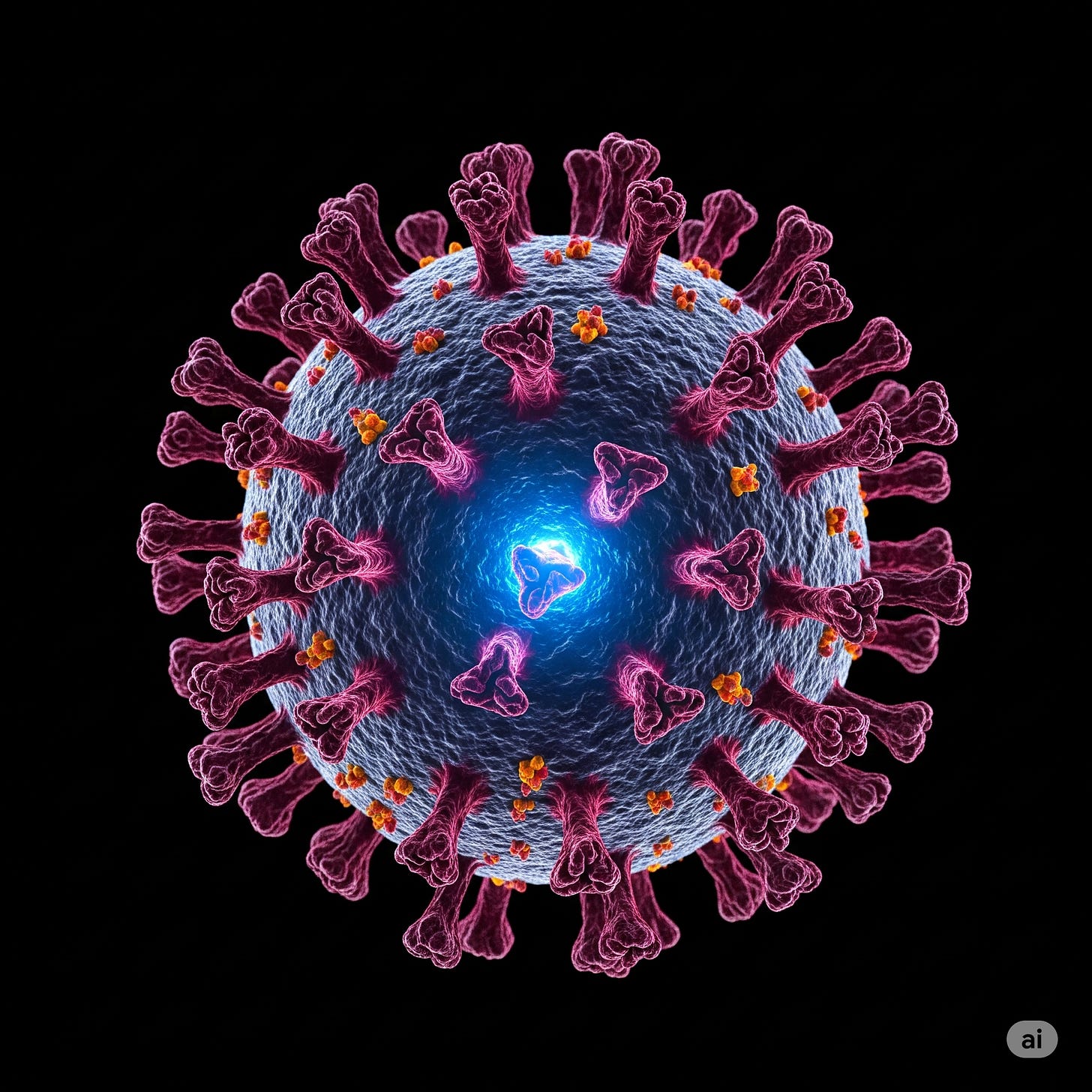Another pandemic?
yes, it might happen soon
Hey hey,
Before you unplug for the weekend, here’s something worth paying attention to.
No, it’s not another celebrity breakup or an overpriced new phone. It’s something far more pressing, a possible new virus threat, and it’s closer than we’d like.
Let’s dive into it…
📌 A virus just one mutation away from humans? Yes, really
A new bat coronavirus called HKU5-CoV-2 has caught the attention of scientists around the world, and not for good reasons.
According to a recent study published in Nature Communications, this virus is alarmingly similar to the deadly MERS virus, and it may be just one small mutation away from infecting humans.
Let’s break that down.
This virus belongs to a group of coronaviruses called merbecoviruses, the same category as MERS-CoV (the virus responsible for the Middle East Respiratory Syndrome).
Researchers from Washington State University, Caltech, and the University of North Carolina found that with just a slight tweak in its spike protein, HKU5-CoV-2 could bind to human ACE2 receptors, the same receptors that SARS-CoV-2 (a.k.a. the virus behind COVID-19) used to enter our cells.
Basically, it’s like having the key to your front door… almost. It just needs to be cut slightly differently.
What’s more, the virus has already spilled over from bats to minks in China. This intermediate jump is concerning. Anytime a virus starts moving between species, it increases the odds that humans could be next, especially in areas where people live close to or interact frequently with wildlife.
To study how dangerous this could get, scientists created pseudo-viruses, engineered viruses designed to mimic the real one without causing illness. When tested on various cells, they found that although the original virus struggled to infect human cells, a minor mutation changed everything. Suddenly, it could bind to the ACE2 receptor much more effectively.
To accelerate this research, the team used AI models like AlphaFold3.
These tools helped visualize how the virus might interact with human cells and confirmed the potential for infection. Victoria Jefferson, a PhD researcher on the team, noted that AI sped up their understanding dramatically, making it clear how little room there is for error.
Now, we’re not saying panic.
As of now, HKU5-CoV-2 hasn't infected humans.
But virologists like Dr. Michael Letko are urging the world not to get comfortable. “There’s no proof they’ve infected people yet,” he said, “but they coul, and that’s why we need to keep an eye on them.”
So what does this mean for us?
Another pandemic? Hopefully not. But it does mean that disease surveillance, wildlife monitoring, and rapid scientific collaboration are more important than ever. Because, as we’ve all learned the hard way, viruses don’t wait for permission.
They mutate.
Fast.
So, that’s it for today. If you enjoyed this edition, subscribe to hear from us every day!
See ya 👋


